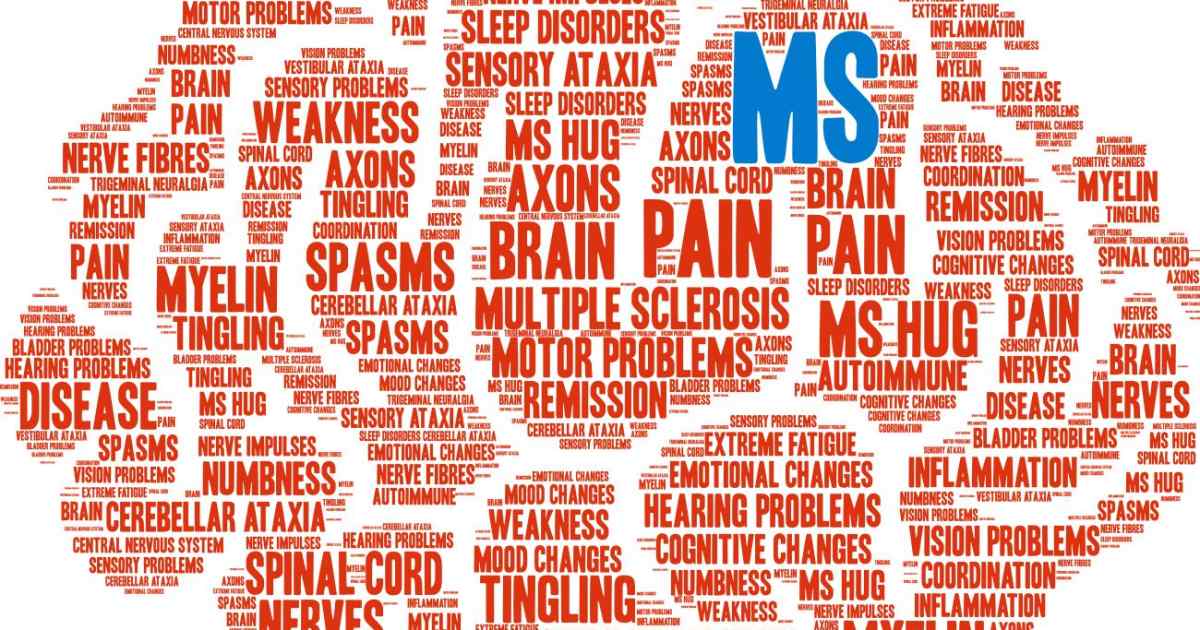Multiple sclerosis — or MS — is a disease of the central nervous system where nerve impulses are disrupted. With MS, the immune system attacks the nervous system. Fortunately, you can learn everything you need to know about MS with a search online.
MS occurs in people who respond to environmental factors that trigger the disease. A person is more susceptible to MS if a family member has MS. A person who is diagnosed with MS will need ongoing medical care to treat and monitor the disease.
Symptoms of Multiple Sclerosis
MS symptoms are unpredictable. Symptoms vary from person to person and can change over time. No patient will have symptoms that are identical to someone else with the disease. A person with MS may experience only one or two of the common symptoms, which include:
- Fatigue
- Numbness or Tingling
- Weakness
- Difficulty Walking
- Dizziness or Vertigo
- Muscle Stiffness or Spasms
- Pain
- Sexual Dysfunction
MS may also cause vision, bladder or bowel problems. MS can cause speech difficulties and problems swallowing as a result of the nerve damage. Emotional and cognitive changes are possible, and depression is a frequent issue for people with MS. There are also many less common symptoms such as headaches, tremors, seizures and breathing problems. MS symptoms can cause secondary medical issues or complications that will also require treatment.
Types of MS
Most people with MS go through periods of time when their symptoms flare. These are called relapses or attacks. A relapse can mean that existing symptoms are getting worse or that new symptoms have appeared. There are four main types of MS, characterized by the pattern of relapses and remissions.
- Relapsing Remitting: acute attacks with recovery periods in between
- Secondary Progressive: after initial relapse remitting phase, progressive attacks with occasional remissions
- Primary Progressive: progressive attacks without remissions
- Progressive Relapsing: progressive attacks with remissions
MS Treatments
There is no cure for Multiple Sclerosis, but there are many treatment options. When treatment starts early, the disease can be slowed. It is important for someone with MS to work with a healthcare team and participate in an ongoing treatment program to manage the disease. In many cases, patients are referred to other specialists to help with treatment.
The FDA has approved 10 different medications for the long-term treatment of relapsing MS. These medications can lower the severity and reduce the frequency of attacks. They may also slow the lesions that accumulate on the brain and spinal cord due to myelin damage. Currently, there are no medications approved to treat primary progressive MS.
Treatments are also available to help manage symptoms and deal with attacks. High dose corticosteroids can be used to reduce inflammation. Pain management strategies can help control or relieve pain. Rehabilitation therapy will help with mobility issues and can also be used to address other problem areas such as speech and swallowing. Depression and anxiety may be treated with a combination of therapy and medication.
An individual’s treatment plan will be as unique as his or her symptoms. As symptoms change, the treatment will also change. A healthcare team will monitor treatment and coordinate with other specialists to ensure comprehensive care.
Prognosis
Siponimod
Although Siponimod has yet to be officially approved by the FDA, this investigative drug is showing good promise. It’s designed to slow the progression of advanced multiple sclerosis. During a study, participants taking Siponimod were found to have fewer brain lesions. On the downside, Siponimod didn’t improve their ability to walk.
Autologous Hematopoietic Stem Cell Transplantation (AHSCT)
A lot of researchers are hoping that AHSCT starts to make waves. The goal of this procedure is to “reboot” the immune system by introducing new stem cells into the body.
Because AHSCT involves aggressive chemotherapy, it can be a bit a bit risky. However, a recent study touts the safeness of the AHSCT. Most importantly, patients treated with AHSCT have experienced very positive results. After receiving the procedure, most people recorded a lower disability score.
Resistance Training
Regular exercise has long remained a key component to maintaining good health. New research shows that resistance training may prove to be especially helpful in overcoming multiple sclerosis. It could help protect the nervous system. After being involved in a resistance training program, most people report fewer physical impairments and more energy.
Lipoic Acid
Lipoic acid is being touted as an effective treatment for multiple sclerosis. Scientists think this antioxidant may be able to reduce nerve damage. It’s already being used to treat other serious health ailments like diabetes and HIV. Although lipoic acid should not cause any major side effects, some people have reported headaches and muscle cramping.
Diet for MS
MS cannot be cured by following a special diet, but good nutrition will benefit overall wellness. A diet low in fat and high in fiber is recommended. MS patients should avoid saturated fats and eat only low-fat dairy products. A person with MS should also limit the consumption of caffeine, aspartame and alcohol. The diets recommended by the American Heart Associate or American Cancer Society provide good models of healthy eating for people with MS.
Living With MS
MS is a disease that causes challenges in many areas of life. A patient’s overall health plays a huge role in his or her day-to-day happiness. People with MS should take advantage of resources that will help them through difficult times. A doctor can provide information to help patients understand the disease. Support groups offer opportunities for people with MS to meet and interact with others who have the disease. These support groups can become a valuable part of a long-term plan for treatment and wellness.
